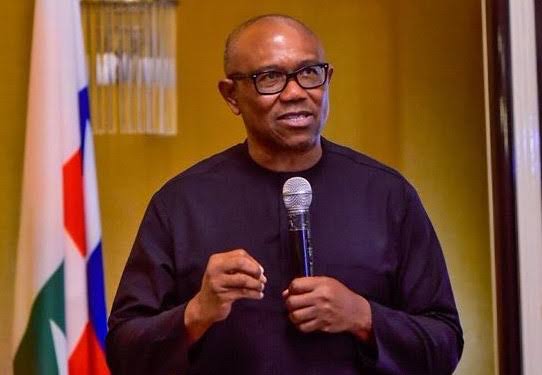
Cybersecurity Levy: Government more intrested in milking a dying economy – Peter Obi

In a scathing critique of the government’s recent decision to introduce a Cybersecurity Levy, Labour Party presidential candidate Peter Obi has denounced the move as detrimental to the already beleaguered Nigerian economy.
Obi contends that the imposition of yet another tax burden on Nigerians, who are grappling with severe economic distress, underscores the government’s misplaced priorities and its failure to foster economic recovery and growth.
The introduction of yet another tax, in the form of Cybersecurity Levy, on Nigerians who are already suffering severe economic distress is further proof that the government is more interested in milking a dying economy instead of nurturing it to recovery and growth, he noted.
Speaking out against what he perceives as “multiple taxation on banking transactions,” Obi highlights the irony of imposing additional levies when the government has pledged to streamline the tax system and reduce the tax burden on citizens.
The Cybersecurity Levy, he argues, will further deplete the trading capital of businesses, exacerbating the challenges posed by currency devaluation and rampant inflation.
Obi expresses disbelief at the expectation for citizens to single-handedly fund government activities, cautioning that such policies deepen poverty and undermine Nigeria’s global competitiveness.
Obi raises concerns about the allocation of revenue from the Cybersecurity Levy, questioning why the office of the National Security Adviser (NSA) is designated as the recipient of returns from this tax.
He challenges the rationale behind transforming a national security institution into a revenue collection agency, questioning the legitimacy of such a move.
And when did the office of the NSA become a revenue collecting centre? And why should that purely national security office receive returns on a specific tax as stated in the new cybersecurity law, he questioned.
He argued that instead of alleviating economic pressures, the government’s decision to introduce new taxes contradicts efforts to combat inflation. Obi asserts that the timing of this levy is particularly ill-suited, as it comes at a time when the focus should be on reducing taxes to mitigate inflationary pressures.
About The Author
Related Articles
Tinubu Government Delays Release of Signed Tax Acts to the Public
Four days after President Bola Tinubu announced the signing of four tax...
ByMayowa DurosinmiJune 30, 2025As Tinubu Urges Africa-Caribbean Unity in Saint Lucia, Over 272 Nigerians Killed in June Alone
While Nigerians deal with deadly violence, worsening hunger, and mass flooding, President...
ByWest Africa WeeklyJune 30, 2025You Can’t Tax a Dead Economy: Nigeria Is Suffocating Under Its Own Policies
As Nigeria’s Central Bank clings to its benchmark interest rate of 27.5...
ByWest Africa WeeklyJune 30, 2025“Wike is Not a Blessing to Us, He’s a Disaster” — Workers Protest in Nigeria’s Capital Over Unpaid Wages, Poor Working Conditions
Staff members of the Federal Capital Territory Administration (FCTA) in Abuja barricaded...
ByOluwasegun SanusiJune 30, 2025











